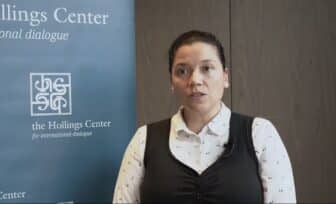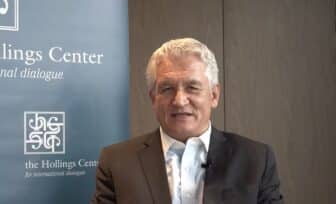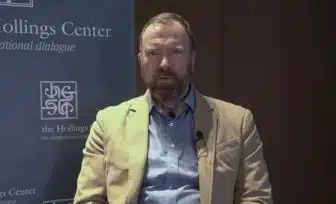Transnational Crime and Myanmar - Kyaw Htet Aung
In this video, Kyaw Htet Aung discusses the rise and impact of transnational crime and Myanmar following the country’s 2021 military coup. He explains that Myanmar has become more vulnerable to various forms of transnational organized crime, including human trafficking, drug production, and scam centers, partly due to weakened governance and security. The instability has allowed armed groups linked to the Myanmar military to engage in these illicit activities, further politicizing the crimes and complicating efforts to address them. Aung highlights how this situation has regional consequences, affecting neighboring Southeast Asian countries as well as others like Bangladesh, India, and China.
Kyaw Htet Aung also points out that the economic disruption and conflict in Myanmar have pushed many civilians to migrate, often becoming vulnerable to recruitment by criminal networks. He notes that the physical crackdown on scam operations has proven insufficient, as these groups simply relocate their activities. Therefore, he stresses the importance of strengthened cooperation between domestic, regional, and international actors, including ASEAN, to effectively tackle the challenges posed by transnational crime in and around Myanmar.
This video was filmed during the Hollings Center’s dialogue program Myanmar and Southeast Asia: Challenges and Opportunities in Regional Relations, which occurred in February 2025.
Speaker Biography
Kyaw Htet Aung is the program head of the Conflict, Peace and Security Program at ISP-Myanmar. He holds a master’s degree in political economy from National Cheng Kung University, Taiwan, and a bachelor’s degree in materials and metallurgical engineering from the University of Technology, Myanmar. He has published academic articles and presented at conferences across Asia, the US, and Europe. Before ISP-Myanmar, he worked with the Myanmar Peace Monitoring Program and as a researcher at NCKU. He regularly contributes to media and think tanks on peace, conflict, and political economy, with research interests in rebel group dynamics, ethnic nationalism, and development.


